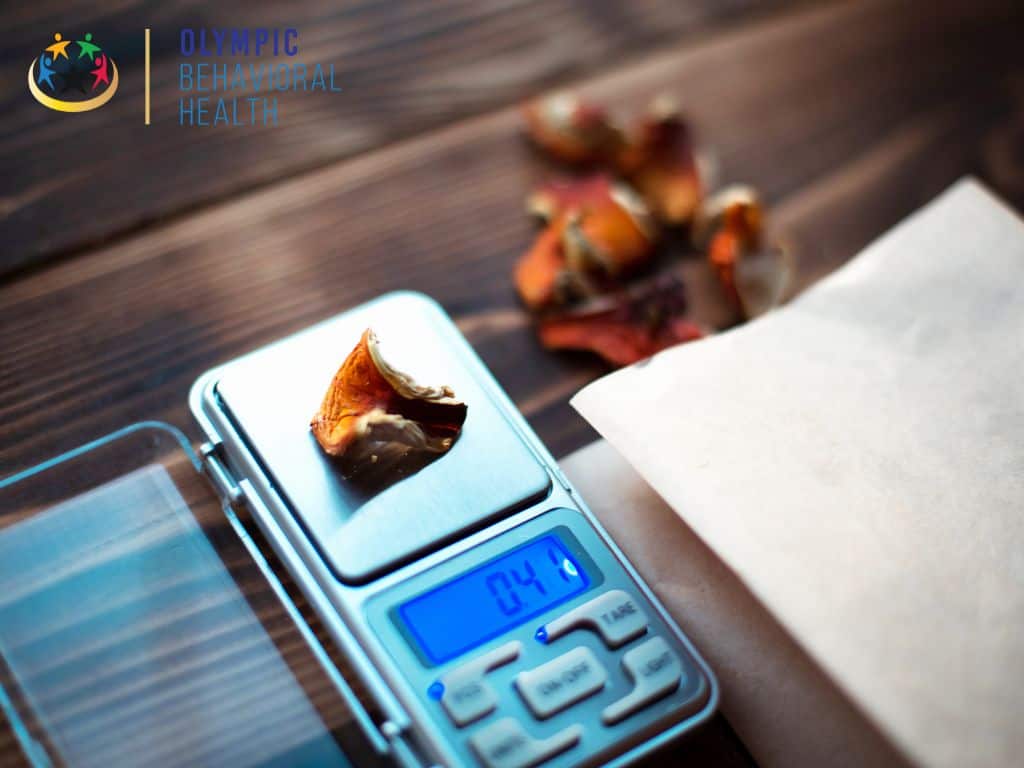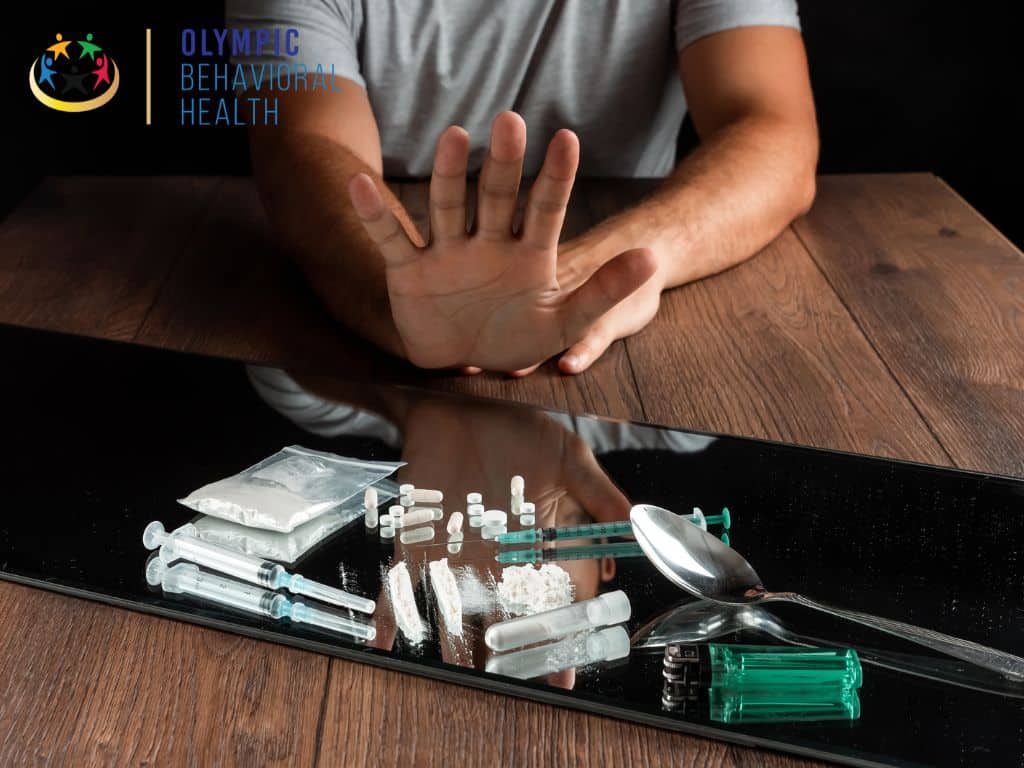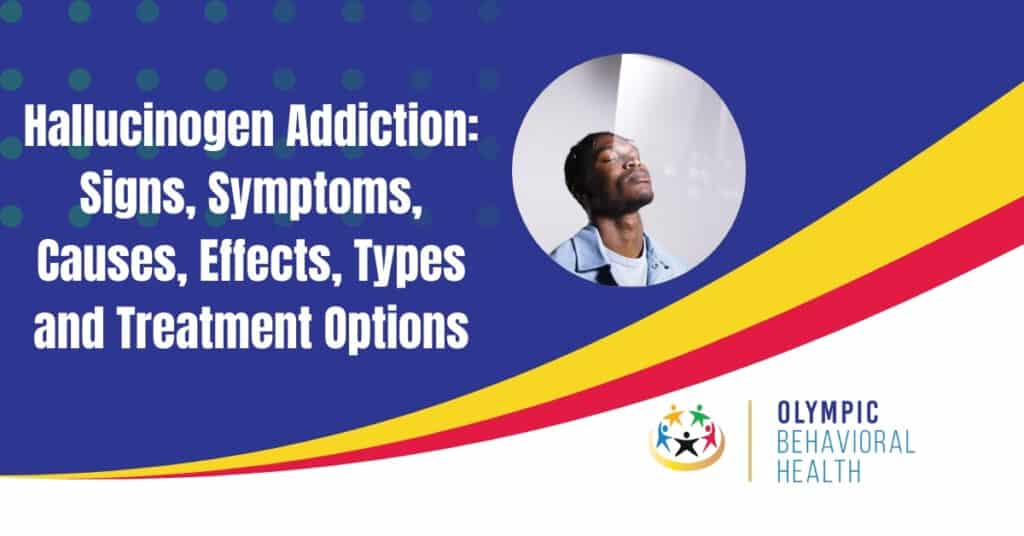Hallucinogen addiction refers to compulsive use of hallucinogens. Individuals addicted to hallucinogens are unable to control their use of the substances, hence, they cannot stop or reduce usage regardless of the dangers. About 6 million American people aged 12 years or older were active users of hallucinogens in 2019, according to a 2020 report by the Substance Abuse and Mental Health Services Administration (SAMHSA).
Popular examples of hallucinogens used by people are LSD, peyote, MDMA, and psilocybin. The symptoms of hallucinogen addiction are depression, dilated pupils, rapid changes in appetite, paranoia, etc.
Factors that increase the risk of hallucinogen addiction are genetics, mental health disorders, history of substance use disorder, and environment. The effects have the tendency of being very fatal, including coma, seizures, and death.
Behavioral therapy and support groups are common treatment options for hallucinogen addiction since there are presently no FDA-approved medications.
What are Hallucinogens?
Hallucinogens are a class of drugs that are capable of causing hallucinations, distorting perception and altering mood so much that people hear sounds, see images, and feel sensations that are not real, according to the 2015 Hallucinogens and Dissociative Drugs Research Report by the National Institute on Drug Abuse. There are usually two categories of hallucinogens – classic hallucinogens and dissociative drugs. Both categories of hallucinogens cause hallucinations. However, dissociative drugs may have greater effects such as giving users out-of-body experiences.
Are Hallucinogens Addictive?
Most hallucinogens are typically not rated addictive, and hallucinogen addiction is rare. However, hallucinogens are capable of causing cravings, tolerance, as well as withdrawal symptoms. For instance, the National Institute on Drug Abuse noted that LSD doesn’t produce compulsive drug-seeking behaviors, hence it isn’t classified as an addictive drug, but it causes tolerance, which may lead to taking larger doses and may ultimately cause an overdose. Unlike LSD, PCP is a hallucinogen classified as addictive.

What Substances Can Cause Hallucinogen Addiction?
Despite the broad similarity among hallucinogens, each hallucinogen has its own unique characteristics, hence their works differ. Some of the most popular or common hallucinogens are:
LSD
LSD has very powerful hallucination effects, strongly altering the moods and perceptions of users. Sleepless, loss of appetite, increased breathing rate, heart rate, and blood pressure are some of the effects of LSD.
Psilocybin
Psilocybin has similar effects as LSD, strongly altering perceptions. It is found in mushrooms, popularly called ‘shrooms’. The acute effects of psilocybin include reduced amygdala response to negative affective stimuli, leading to reduced negative mood.
Ecstasy (MDMA/Molly)
It has strong hallucinogenic properties, as well as stimulant properties. Molly also enhances the perception of sensory input. Anorexia, paranoia, hyperthermia, and heat exhaustion are some of the side effects of molly.
Peyote
Mescaline is the active hallucinogen ingredient in peyote. It is capable of causing hallucinations and altering perceptions of space and time, among other effects. Increased blood pressure, paranoia, and excessive salivation are some of the side effects of peyote.
DMT
DMT has strong psychoactive effects that typically last up to 45 minutes. Ayahuasca is a very common DMT. Increased heart rate, chest pain, dizziness, and increased blood pressure are common side effects of DMT.
DMT, LSD, Peyote, and psilocybin are classic hallucinogens. Common dissociative drugs are:
PCP (Phencyclidine)
This synthetic drug alters the perception of pain and causes euphoria. Drop in blood pressure, shallow respiration, numbness of the extremities, and acute anxiety are some of the side effects of PCP.
Ketamine
No taste or smell is associated with ketamine, hence it is sometimes used as a date-rape drug. It alters the perception of pain and causes the feeling of detachment from the body. When used with other CNS depressants or alcohol, individuals are at the risk of experiencing profound respiratory depression and even death.
Salvia
Its main ingredient, salvinorin A, affects the way the brain’s neurons communicate, thereby causing intense hallucinations, feelings of detachment from the body, etc.
Dextromethorphan (DXM)
DXM is an ingredient used in cold and cough medications. When used in high doses, users experience hallucinations and euphoria.
Other examples of hallucinogens are MDMA, NBOMe, and Ibogaine.
How Do Hallucinogens Work?
The impacts of hallucinogens on the brain vary, depending on the hallucinogen used. However, hallucinogens in each category work similarly. For instance, neural circuits involving serotonin are disrupted by classic hallucinogens, hence interfering with mood, psychological processes, and sensory perceptions of individuals.
On the other hand, associative drugs affect the activities of glutamate, an excitatory neurotransmitter that also impacts cognition, emotion, and perception of pain. The type of hallucinogen, the doses, the environment it was used, and mood all influence the experiences of users.
How Long Do Hallucinogens Stay in the Body?
The combination of different factors contribute to how long hallucinogens stay in the body, with a general duration of 6 hours to 90 days depending on the types of tests done. The following factors determine how long hallucinogens will stay in the bodies of users:
- The type of hallucinogen used: as explained above, hallucinogens differ in how they work, hence how they remain in the body also differs.
- How much of a hallucinogen is used: the higher the quantity of hallucinogen used, the longer it will be in the body and the greater its effects.
- Biological factors: age and weight also determine how long hallucinogens will remain in the body. The higher the weight, the shorter the hallucinogen is likely to stay in the body.
- Underlying health issues: health conditions of individuals affect the effects of hallucinogens and how long they will last.
When conducting tests for the presence of hallucinogens in the body, what is found depends on the sample collected (e.g. blood and urine). It’s possible for hallucinogens to be found in the urine but not in the blood, because drugs are typically more concentrated in the urine and have an extended drug detection window. The window is even more extended for hair. E.g. LSD lasts 6 to 12 hours, 2 to 4 days, and up to 90 days in the blood, urine, and hair respectively.
What Are The Symptoms or Signs of Hallucinogen Addiction?
There are numerous indicators of hallucinogen addiction. Though only professionals can confirm addiction or substance use problems, the following symptoms are indications of a hallucinogen addiction:
- The continuous use of hallucinogens despite the physical or mental health problems they are causing
- Failure to meet responsibilities: if the use of hallucinogens is affecting important tasks, whether at work or home.
- Inability to control dosage or the period of use
- Failing relationships caused by the use of hallucinogens
- Cravings
- Higher doses are required to achieve the same effects
- Inability to stop or reduce the use of hallucinogens
- Social withdrawal, including people and activities individuals used to enjoy
- A lot of time is dedicated to thinking about, using, and recovering from hallucinogens
- Withdrawal symptoms
- Bizarre or erratic behavior
- Extreme changes in appetite
- Dilated pupils
- Depression
- Poor perception of time, space and distance
- Rapid breathing
- Coordination problems
- Paranoia
What are the Withdrawal Symptoms of Hallucinogen Addiction?
Some hallucinogens, such as ketamine and PCP, present withdrawal symptoms when an individual tries to stop using them or reduce doses. Some of the most common withdrawal symptoms of hallucinogen addiction are:
- Cravings
- Sweating
- Headaches
- Flashbacks
- Stiff muscles
- Convulsions
- Drastic body temperature changes
- Rapid heart rate
What Are The Causes or Risk Factors of Hallucinogen Addiction?
Family history: trends have shown that individuals who come from a family with a history of substance abuse are more vulnerable to addiction.
A history of substance use disorder: individuals who have previously abused substances are at a higher risk of getting addicted to hallucinogens.
Mental health disorders: addiction and mental health disorders often occur together because one typically leads to the other. For instance, an individual with a mental health disorder is more likely to turn to drugs for relief.
Environment : individuals who live in environments where drug abuse is rampant or live around people abusing hallucinogens are at a higher risk of developing hallucinogen addiction. The reasons include ease of access.
Typically, at least two of these factors work together before addiction develops. For example, someone from a family with a history of addiction gets exposed to hallucinogens.
What Are The Side Effects or Dangers of Hallucinogen Addiction?
The side effects of hallucinogen addiction depend on several factors, such as the type of hallucinogenic drug taken, the person who took it, how much was taken, as well as if another drug(s) was used together with it. Some of the most common dangers of hallucinogen addiction are:
- Sweating
- Chills
- Increased body temperature
- Numbness
- Dizziness
- Confusion
- Hallucinations
- Anxiety
- Disorientation
- Blurry vision
- Paranoia
- Increased blood pressure and heart rate
- Increased breathing rate
- Irregular heartbeat
- Loss of coordination
Besides the dangers of hallucinogen addiction, individuals also often experience adverse reactions, called a “bad trip”, to hallucinogens. Such reactions include:
- Intense hallucinations
- Panic
- Anxiety
- Intense fear
- Paranoia
- Psychosis

What Treatments are available for Hallucinogen Addiction?
At the moment, there are no FDA-approved medications for treating hallucinogen use disorder. However, there are other types of treatments available for hallucinogen addiction recovery. They include:
Behavioral therapy: it is the most frequently used treatment type, with impressive effectiveness in treating substance use disorders. It includes cognitive behavioral therapy (CBT), motivational enhancement, contingency management. These techniques are capable of enhancing individuals’ resolve or motivation for recovery, improving coping mechanisms, and improving communication skills, increasing individuals’ ability to function properly in different areas of life, and reducing the risk of relapse.
Support group and 12-step programs: it entails a community of individuals in recovery sharing tips and guidelines. The support in these groups is important to recovery.
Treatment of hallucinogen addiction is either inpatient or outpatient, depending on the recommendations of professionals.
What are the similarities and differences in the treatment options for stimulant addiction and hallucinogen addiction?
When it comes to the symptoms and treatment options for stimulant addiction and hallucinogen addiction, there are some similarities and differences. Both types of addiction can result in withdrawal symptoms, but the specific treatment approaches may vary. Stimulant addiction may be treated with medication, therapy, and support groups, while hallucinogen addiction may require a different combination of treatment methods, such as detoxification and cognitive behavioral therapy.
What are the similarities and differences between Cannabis addiction and Hallucinogen addiction?
Both Cannabis Addiction and Hallucinogen addiction involve a psychological dependence on the substance. However, Cannabis Addiction focuses on the use of marijuana, while Hallucinogen addiction involves a broader range of drugs that cause hallucinations, such as LSD and psilocybin. Treatment for both addictions may include therapy and support groups.
Can Hallucinogens be Overdosed?
Yes. Hallucinogens can be overdosed, leading to fatal consequences, like physical injuries and suicide. The signs of a hallucinogen overdose vary, depending on the drug used. However, general symptoms of a hallucinogen overdose are depressed breathing, seizures, coma, and death (rare). Hence, it is imperative to get help immediately if you think an individual has overdosed on a hallucinogen.
How Can You Prevent Hallucinogen Addiction?
To prevent hallucinogen addiction, attention must be paid to the risk factors or causes. Individuals should also learn key life skills, such as healthy ways to cope with stress and other life events. You should also monitor your use of hallucinogens.

Share This Post



